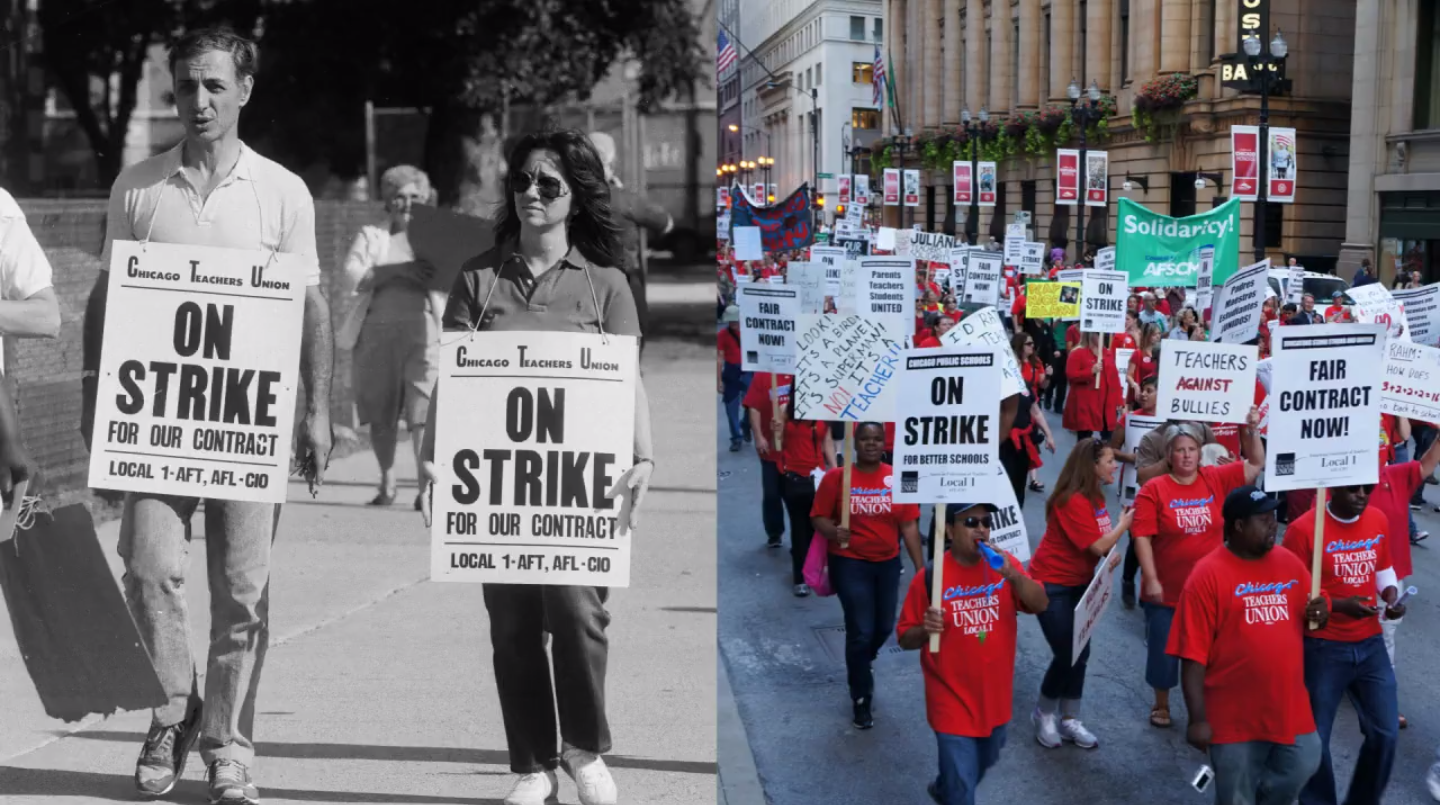Twenty-seven years ago this past Saturday, major newspapers across the country quoted then-Secretary of Education William Bennett as calling the Chicago schools the worst in the nation. Two months before Bennett’s comment hit the headlines, in September of 1987, CPS teachers had taken to the streets in a strike that lasted nineteen school days, the ninth in nineteen years and the last until 2012, when the Chicago Teachers Union went on strike again. Later that year, thousands of children—largely on the South and West sides—learned that their neighborhood schools would close, yet another in a list of controversies that CPS has been the center of in the last quarter century.
“Chicago Schools – Worst in the Nation?”—the first in a series of collaborative documentary shorts called The School Project—aims to place Bennett’s misnomer in the context of Chicago’s education reform history. At the premiere screening of the short film two weeks ago, Chief Historian of the Chicago History Museum Russell Lewis stood in front of teachers, parents, and students in the museum and summed up the story succinctly: “Here in Chicago, perhaps nothing is as complex or troubling as our school system.”
Twenty seconds into the short, the narrator notes that the label “may have been the invention of an overzealous headline writer.” Long-time Sun-Times reporter Linda Lenz later says that reform “did not start with Bill Bennett, but he certainly put an exclamation point on it.” Regardless, what follows in the grainy archival news footage and suspenseful music is an exploration of why the label stuck and how it influenced the way Chicagoans view CPS.
A different Chicago production company created each of the six segments of The School Project, and the next five will be released each month, starting in January. Greg Jacobs and Rachel Pikelny of Siskel/Jacobs Productions directed “Worst In The Nation?” and subsequent segments involve work from, among others, Kartemquin Films, Free Spirit Media, and Kindling Group.
The series was inspired by last year’s CPS closures, but each segment tackles distinct hot-button issues in Chicago public education, from charter schools and privatization to discipline policies and standardized testing. “Our goal is humanizing certain aspects of education and its context,” said the project’s Supervising Producer, Rachel Dickson of Kartemquin.
The anger, excitement, and energy in the footage was mirrored in the audience, who, during a panel following the screening, applauded every statement that condemned Rahm Emanuel and supported CPS teachers. If this first segment is hinting at anything, it is that the narrative surrounding education in Chicago today is not new.
“There’s a tendency sometimes for people, at a given moment, to think ‘now is the only time in history when this has ever happened, and if things are going badly it’s because no one’s ever experienced this before,’” Jacobs explained. “And then typically, when you look back, you see that these things happen in cycles…[you see] the roots that got you to this particular point.”
Victor Montañez, an activist, artist, and educator from the Southwest Side who is featured in the segment, feels that conversation is the first step to ending the cycle. “I hope that [the documentary series] will open up dialogue, and allow people to actually talk about these issues…not simply listen to what the pundits say, or repeat the sound bytes that they hear,” Montañez said in an interview. Accordingly, the film ends with a call for viewers to join the conversation on a website created for the project.
“I don’t think Chicago is that unique,” says Pikelny. “We have a unique history of reform around education, but we’re just one example of a large urban school district with a high proportion of low-income families. Even though in theory, The School Project is about Chicago, we hope it can serve as kind of a case study that could apply to other cities in the country.”
The creators of “Worst In The Nation?” focused on the moments before and after Bill Bennett’s visit to Chicago because they saw the time as a model for re-igniting the collective dialogue and action that characterized it. “[Everyone] brought something to the table and had a real conversation with each other about the best way forward,” says Pikelny. “We want to pinpoint what was happening then that isn’t happening now, and think about how that can change.”
Additional reporting by Olivia Adams

